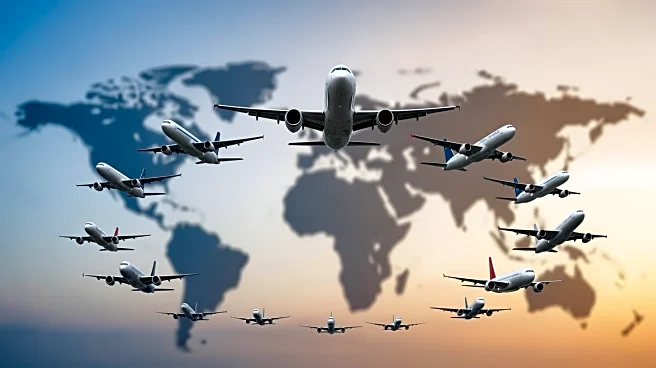What's Happening?
China's major state-owned airlines, including Air China, China Eastern, and China Southern, are protesting a U.S. proposal to prohibit them from flying over Russian airspace when traveling to or from the United States. The U.S. Department of Transportation
argues that these flights give Chinese airlines an unfair cost advantage over American carriers, which are barred from using Russian airspace due to sanctions imposed after Russia's invasion of Ukraine. The Chinese airlines have filed complaints, stating that the ban would harm public interest and inconvenience travelers by increasing flight times and costs. The U.S. Department of Transportation is considering public comments before finalizing the plan.
Why It's Important?
The proposed ban on Chinese airlines flying over Russian airspace could significantly impact the aviation industry, particularly affecting the profitability of U.S.-China routes. U.S. carriers face longer flight paths and increased fuel costs, which could lead to higher ticket prices and reduced competitiveness. The ban could also affect thousands of travelers, especially during peak travel seasons like Thanksgiving and Christmas. The issue highlights ongoing geopolitical tensions and their influence on international trade and travel, with potential repercussions for both U.S. and Chinese airlines.
What's Next?
The U.S. Department of Transportation will review public comments before making a final decision on the proposed ban. If implemented, the ban could lead to increased operational costs for Chinese airlines and potentially alter travel patterns between the U.S. and China. Stakeholders, including airlines and passengers, are likely to continue voicing their concerns, and diplomatic discussions may ensue to address the competitive imbalances cited by the U.S. government.
Beyond the Headlines
The situation underscores the broader geopolitical dynamics between the U.S., China, and Russia, with aviation serving as a microcosm of larger economic and political conflicts. The ban could set a precedent for how international airspace rights are negotiated amidst political tensions, potentially influencing future policies and international relations.















